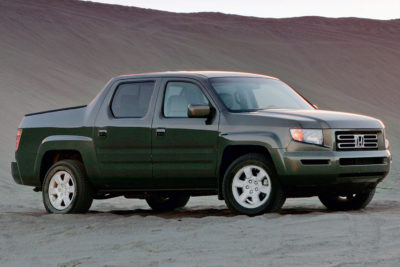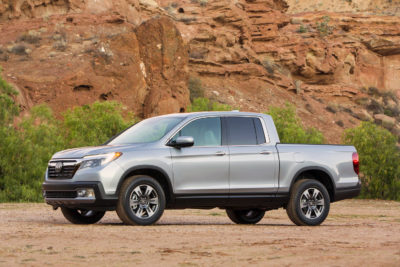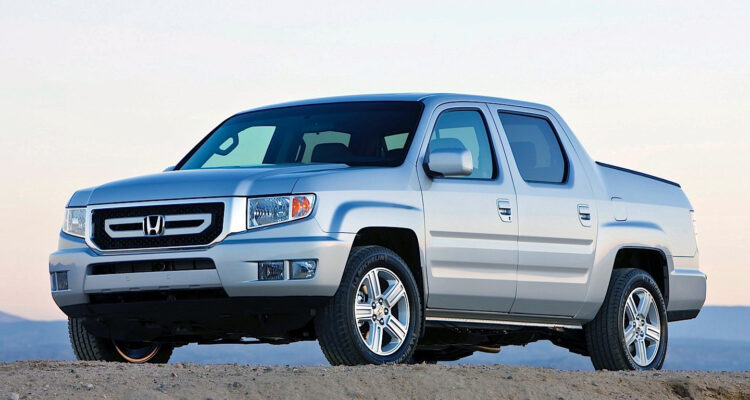Honda Ridgeline offers pickup truck versatility in a midsize package
Given the brand loyalty that exists in the pickup market, it’s a wonder any of the foreign automakers bother trying to break in. That’s a particular challenge when you’re Honda, a company that had never built a pickup before introducing the Ridgeline in 2006.
Honda’s approach to a pickup truck was different from anything else that came before it: A crew cab truck, built on a unibody platform shared with the Pilot SUV and a cargo bed fully integrated into the body of the cab, where other pickups used body-on-frame construction and a bed bolted to that frame as a separate component.

The original Ridgeline also shared its powertrain with the Pilot. A 3.5L V6 and five-speed automatic transmission were connected to an automatic four-wheel drive system that presented another notable difference: this one was front-wheel drive until more traction was needed, at which point drive to the rear axle would engage automatically.
Handy design touches include rear seats that fold up to create more cargo space, a weatherproof “trunk” in the cargo bed, and a hinged tailgate that opens both down and to the side.
Honda banked on its reputation for building durable cars and crossovers to help it sell its first truck, and the Ridgeline succeeded on that front.
The first-generation Ridgeline has a few well-known issues. The most serious one is a transmission fluid cooler integrated into the engine radiator that can leak, allowing coolant and transmission fluid to mix, which can ruin the transmission if not caught early.
There have also been some reports of the Ridgeline’s rear differential failing, and while this doesn’t seem to be a widespread problem, it warrants a look by a trusted mechanic before you buy used.
A set of pulleys that help the Ridgeline’s rear seats fold are prone to breakage, but can easily be fixed.

Many owners report rear brakes that wear very quickly, sometimes requiring replacement before the front brakes (the ones that do most of the work). This was the subject of a class-action lawsuit launched by owners of Accord sedans from the same era that exhibited the same strange flaw.
Honda has issued a couple of service bulletins to its dealers regarding fixes for common Ridgeline faults, including a tailgate that won’t open and an interior water leak caused by a blocked roof drain that runs through the windshield pillar.
Price-wise, don’t expect deals on used models: mid-size trucks enjoyed a big surge in popularity in 2016, which led to inflated prices on pre-owned lots, as buyers look for a less-expensive way to get into a pickup.
Discovering some of the above-mentioned issues will require an inspection by a mechanic, but others, like the folding rear seats and tailgate, will be obvious as you poke around the truck during your test drive.
Bottom line: the Ridgeline is a durable, mid-size truck. What it lacks in outright towing and hauling capacity, it makes up for with clever design touches that add to its everyday practicality. Not bad for a relative newcomer to the truck market.
Related links:
Honda Canada



